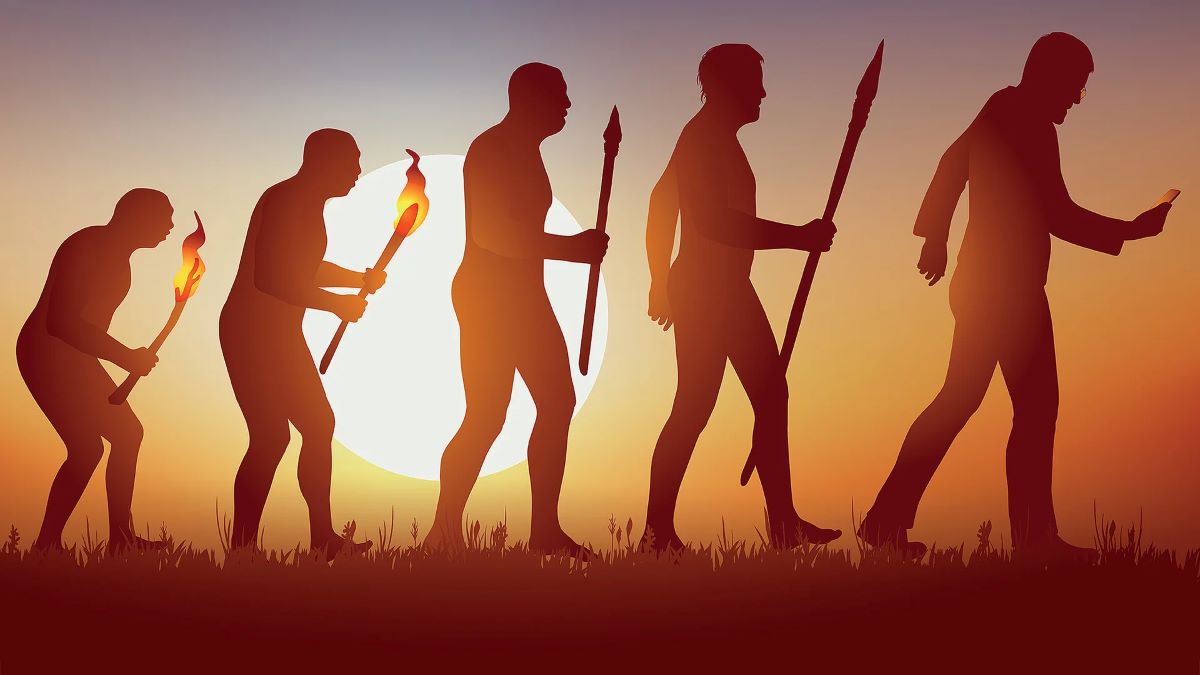“Life is naturally designed to proliferate. After life emerges on any accommodating planet, it will inevitably discover millions of ways to adapt and flourish. After a few billion years, life will be everywhere, spectacularly diverse and wildly prolific. Why, then, do we model evolution in terms of its destructive elements — competition, and culling of the unfit?

Why do we dwell on life’s failures — species extinctions, and individuals who die before they procreate? Our traditional way of thinking about evolution completely misses the point. Life is not about competition, nor about culling the unfit.”
Evolution seeks patterns that cooperate toward their mutual proliferation.
In a Nutshell ...
This website develops a new interpretation of how evolution works. It focuses on evolution’s successes rather than its failures. Just a subtle twist in how we think of evolution opens a new understanding of it that depends entirely on cooperation, without any need for direct competition or culling of the unfit. The result is a simpler style of cooperation-based evolution that accounts for all kinds of progressive systems in the universe. It reveals an abstract directionality in how they all naturally develop.
Patterns of things cooperating toward their mutual proliferation account for everything life is and everything life does. Things cooperate at one level to produce something very different at an abstractly higher level. Nowhere is this more evident than in a human brain, where a hundred billion neurons cooperate to produce a vivid conscious awareness and ability to reason. In fact, every organ in a typical human body consists of cells that cooperate to produce a specific biological function. And at an even higher level, the complementary functions of various organs cooperate to produce a body capable of performing ballet.
 Cooperation is found everywhere in life, at many different levels. Even the molecules inside a living cell cooperate by mutually catalyzing themselves into ever-greater abundance, which is critical for enabling perpetual cell division. It seems that evolution’s ‘job’ is simply to discover ever-better forms of cooperation among replicating patterns of things such as molecules, cells, organs, and especially among individual organisms.
Cooperation is found everywhere in life, at many different levels. Even the molecules inside a living cell cooperate by mutually catalyzing themselves into ever-greater abundance, which is critical for enabling perpetual cell division. It seems that evolution’s ‘job’ is simply to discover ever-better forms of cooperation among replicating patterns of things such as molecules, cells, organs, and especially among individual organisms.
When evolution is properly understood, it accounts for all kinds of ongoing progress in the universe, from how earthly life got started to the natural development of biology, culture, technology, and economic prosperity. This cooperation-based view of evolution even resolves a decades-old debate among evolutionists over group selection. Further, we learn certain philosophical truths, including the natural origins of morality and the purpose of life. Most importantly, we learn a lot about the ultimate destiny of life and technology.
On this website you’ll find articles that summarize the various themes running throughout this new interpretation of evolution. The most important article is titled Evolution Thrives on Cooperation. It lays the foundation for everything else. Also on this website is the outline of a book that brings together all the intertwining themes into a coherent argument. The book will change over time as discussions here continue the development of critical concepts. And maybe, one day, it will be published, either here or in the more traditional physical format.
If you want to understand how evolution really works, this website was designed for you. By contributing to discussions here, you can even participate in the ongoing revelation of consequences that are likely to flow from this new understanding. Once you gain a thorough understanding of how evolution works, you’ll get a much clearer view into the future of life on Earth. You’ll see it in a very different way. It will become crystal clear that evolution is just getting started.

Is evolutionary progress predictable in any abstract way?

Is there a destiny for life?

Do the forces of nature determine morality and the purpose of life?
"A thought provoking, careful analysis of the components of evolution, resulting in a bold paradigm shift from 'red in tooth and claw' to something completely different."
— Kirk Tennent


